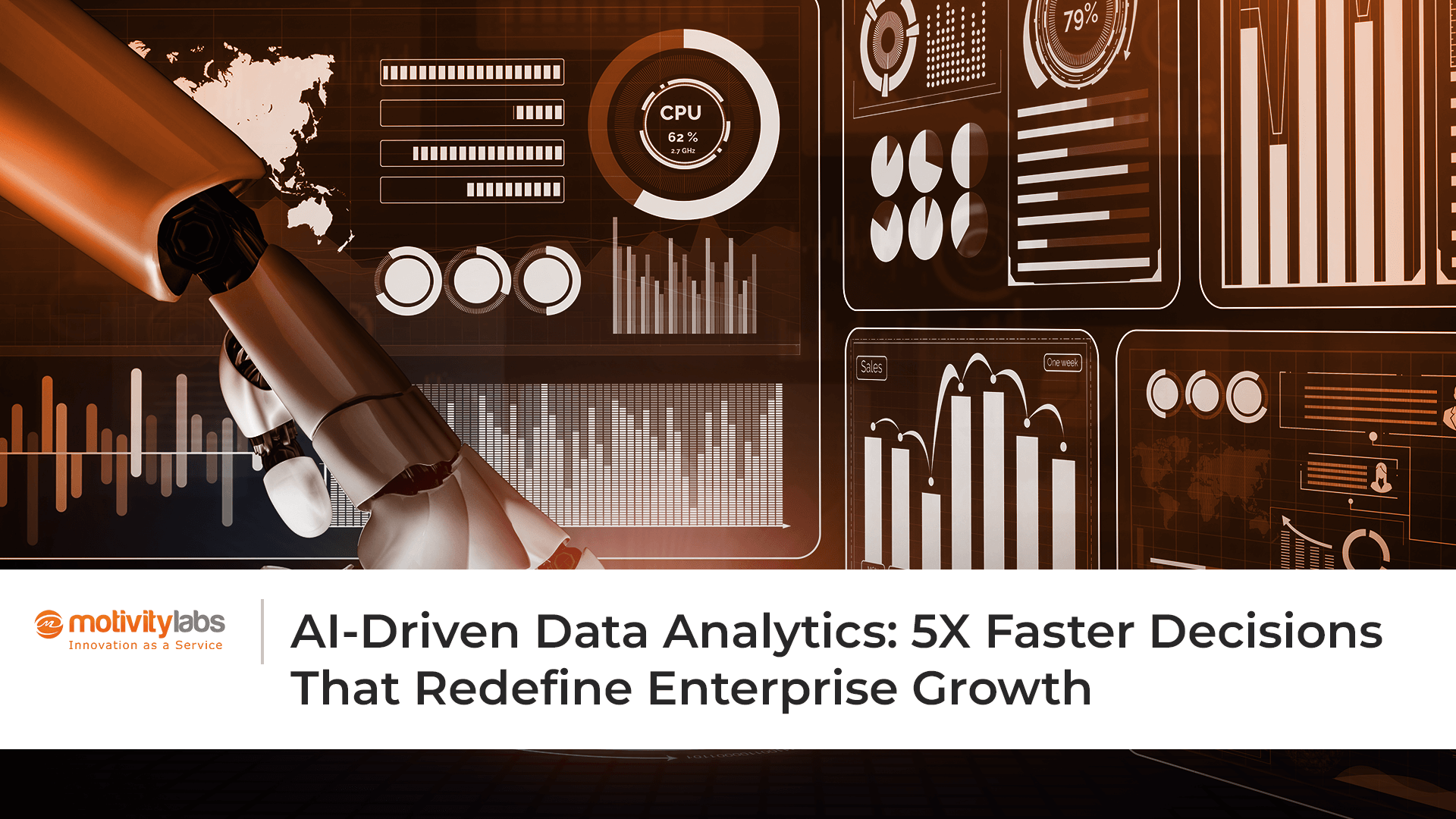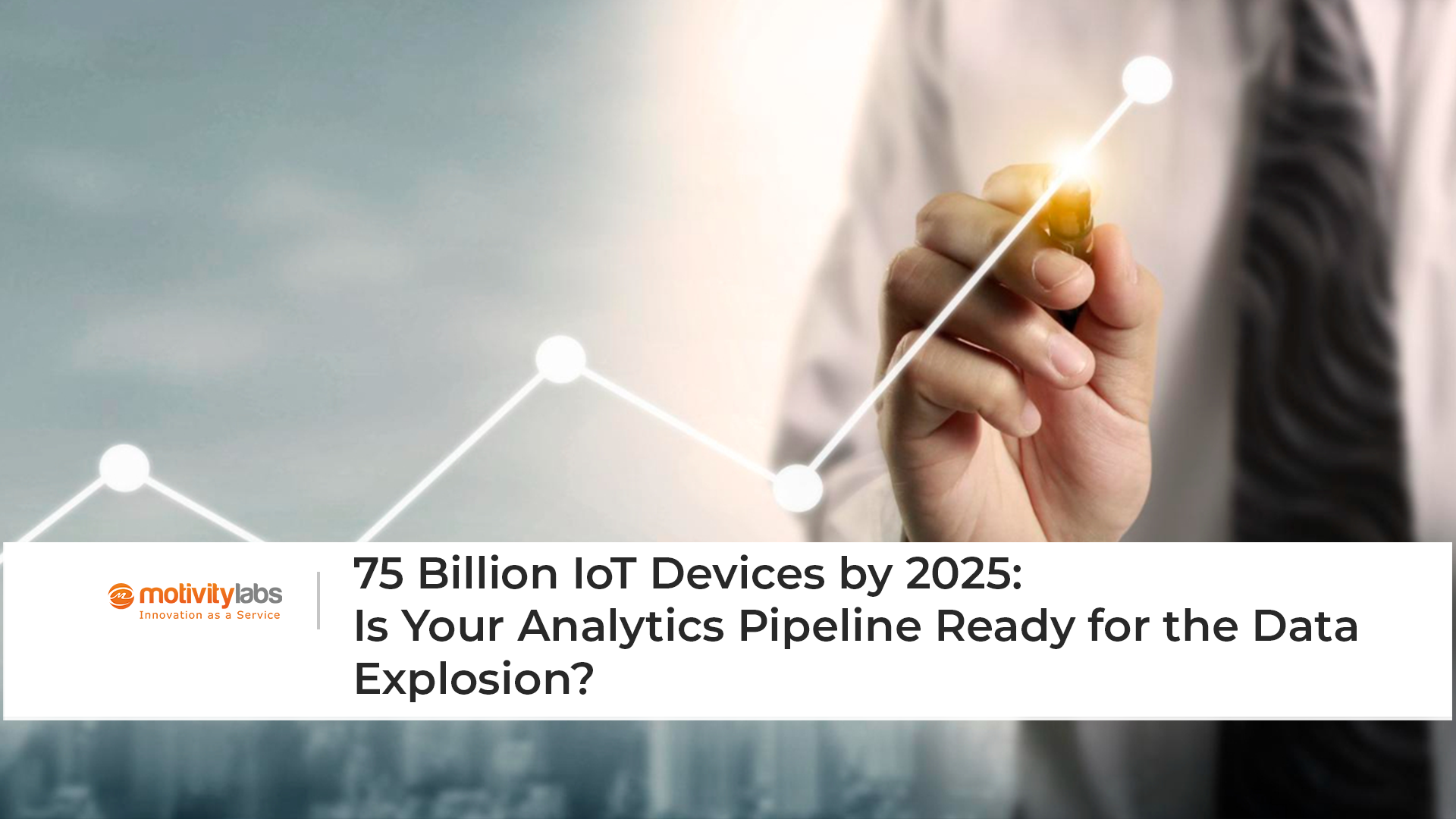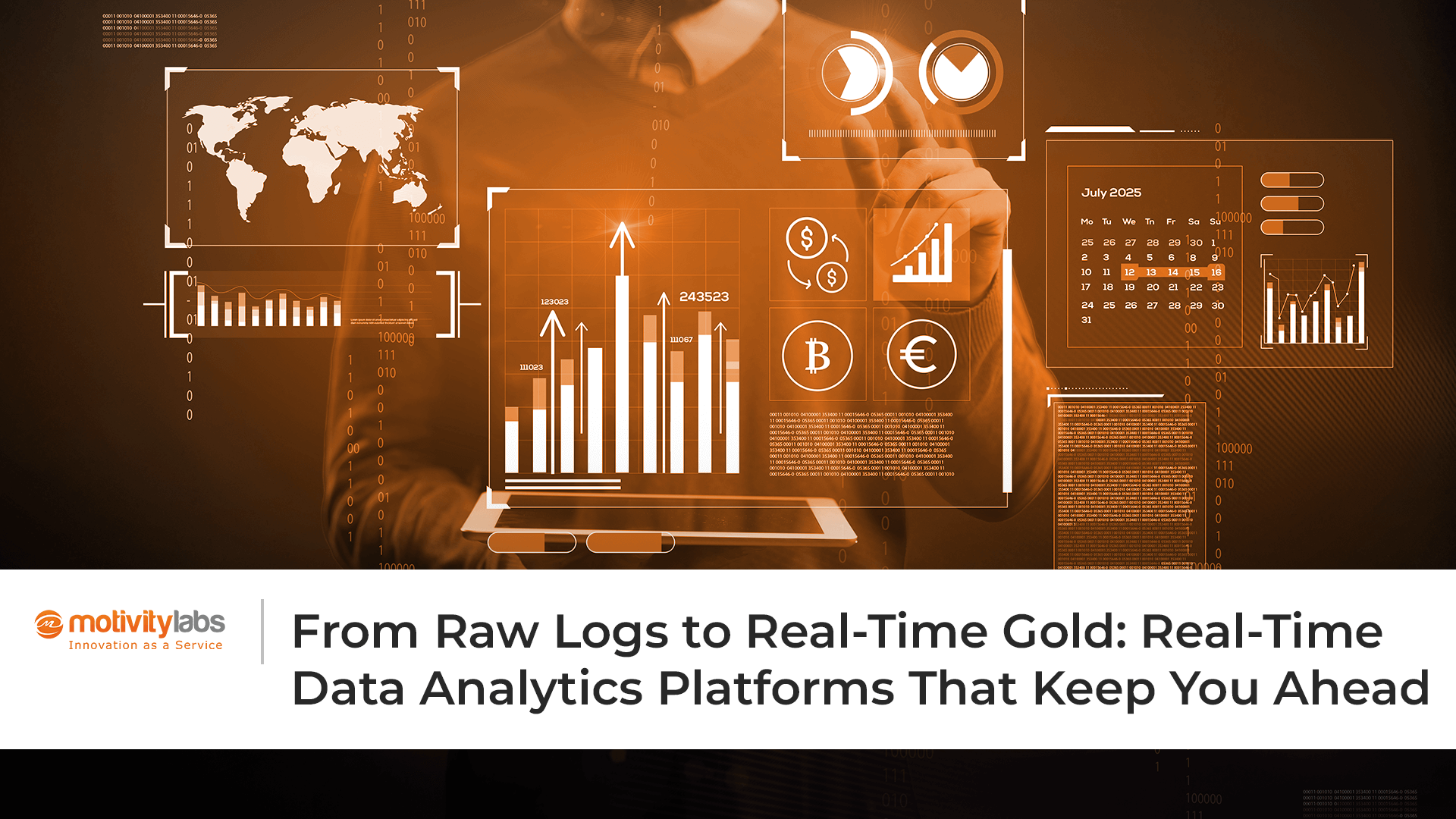With the world moving fast today, the healthcare and hospitality industries are feeling the pressure to make informed decisions in real time. The importance of data analytics in healthcare and the hospital industry data analytics cannot be overstated, while these sectors try to innovate in patient care, operational efficiency, and guest experiences.
This is where real-time data analytics plays a very important role in helping the healthcare provider and the hospitality professional to take very effective decisions with no time wasted. Organizations will use advanced analytics tools and techniques to gain better insights into patient behavior, treatment outcomes, guest preferences, operational efficiency, and a lot more. The article explores the importance of data analytics in healthcare segment, and real-time data analytics in hospitality industry, and how such drives better decision-making for overall improved performance.
The Importance of Data Analytics in Healthcare

Data analytics has now emerged as a crucial element in modern health care because it truly transforms the concept of the hospital industry. By accurately depicting data, this branch of study helps hospitals operate at full capacity, efficiently manage all resources, and therefore provide optimal patient care. Hospital Data analytics eases the treatment procedure; it enhances the efficiency of a hospital in identifying the pattern of the diseases and resource requirements.
Patient care analytics empower the physicians with personalized treatments, smooth workflows, and judicious use of resources. Insights into data on patients drive practitioners to make well-informed decisions that reduce costs and enhance the quality of care. The importance of data analytics in healthcare can be assessed by how it enables doctors and practitioners to use resources judiciously, smoothen processes, and optimize care.
Real-time analytics in healthcare enables quality patient care. Analysis of patients’ data in real time supports the identification of potential health risks, progress monitoring, and making informed decisions. Patient care Analytics allows for personalized treatment plans, which will drive better outcomes and lower costs. Hospital data analytics is another key contributor to optimizing efficiency in operations. By analyzing the trends in patient flow, resource utilization, and productivity of the staff, hospitals will be able to manage their resources effectively, reduce waiting times, and give a better overall satisfaction to the patients.
Applications of Healthcare Data Analytics
Patient care: Data analytics comes up with the individual needs and risks of every patient, based on which customized treatments can be done.
Preventive care: Through data analytics in real-time, potential health issues can be spotted to which measures may be suggested to overcome.
Predictive analytics: By processing insights on patient data, foresight about future health issues is possible for various precautionary measures to be designed.
Disease Monitoring: It monitors the spread of diseases, creates outbreak thresholds, and provides guidelines on the formulation of public health policies in such situations.
Supply Chain Optimization: It optimizes inventories, reduces wastage, and streamlines supply chains more effectively.
Resource Management: It examines bed utilization and other resource utilization to provide insight into the proper allocation of resources.
Performance Appraisal: Performance appraisal against benchmark standards of the hospitals to reveal areas of improvement
New Drug Target Discovery: Helps scientists find new targets for drugs and test different treatments.
Optimization of Clinical Trials: Enhances design and conduct of clinical trials, eventually accelerating the development of drugs.
Population Health Management: It deals with big data to understand the population health trends and can hence come up with tailor-made programs.
Identification of Treatment and Therapy: Real-time hospital data analytics apply technologies capable of analyzing clinical trials and real-world information for identification of new treatments and therapies.
Financial Management: It enhances processes such as billing and payment, eradicating losses and controlled costs.
Research and Development: Analytics around hospital data informs the formulation of research studies in medicine. It helps the researchers with the discovery of patterns or correlations by analyzing large volumes of data generated from clinical trials and thus provides new insights into the development of new treatments. This increases the pace of developing new therapies while raising the quality bar of care.
Fraud Detection and Prevention: It helps detect and prevent fraud through healthcare analytics in billing patterns and anomalies. It allows the IT business analytics to be put in place to track down the fraudulent claims by deploying advanced analytics techniques, protecting organizational financial resources against non-compliance of regulation.
Benefits using Real-time data analytics in the Hospital Industry
Real-time data analytics empowers the revolution of hospitals in making informed decisions more quickly to enhance patient care analytics and operational efficiency within their organizations. The major benefits of real-time hospital data analytics include but are not limited to the following.
1. Enhanced Patient Care and Outcomes
Real-time analytics in health care enable providers to monitor patient conditions continuously. Analyzing vital signs, along with other measures of health status in real time, allows clinicians to rapidly identify a change in a patient’s condition. It therefore assures them of quicker interventions, personalized treatment plans, and overall better patient outcomes. For instance, predictive analytics identifies those patients with high complications risk, enabling timely preventive measures.
2. Operational Efficiency
Data is generated in bulk on a day-to-day basis in hospitals. Real-time analytics brings order to operations and provides information related to workflow efficiencies. The analysis of patient flow data, resource utilization, and staff performance will lead to the identification of bottlenecks and ensure optimization in terms of scheduling, reduction in waiting time, and resource allocation planning. This would minimize operational costs and enhance patient satisfaction.
3. Proactive Decision Making
With real-time data at their fingertips, health professionals can proactively make decisions rather than just reactive ones. For instance, analytics apply historical data and current trends to predict the rate of admission of patients to hospitals and help them prepare surges in the volume of patients. In this regard, the management level of preparedness is one aspect that benefits from such a proactive approach, given the fact that other related areas like staff levels and equipment availability need to be prepared in advance.
4. Early Disease Detection and Prevention
Real-time analytics can prominently facilitate early-stage detection and prevention. In a continuous process, a high amount of data about the patients will be analyzed to understand patterns indicating the onset of some chronic state or other health issues. For example, algorithms would identify patients who have the potential to become diabetic or suffer from heart disease; after that, early-stage treatment and changes in lifestyle can prevent further exacerbation of these diseases.
5. Improved Resource Management
Resource management often becomes very critical in a health facility, particularly during peak periods. Real-time analytics in hospitals allow them to track in real time the status of bed availability, medical consumables, and staff on duty. This ensures that resources are well used without any form of waste, further helping to raise the standard of patient care. For example, analytics can predict which departments will see an increase in demand and thus will need more staff and resources.
6. Improved Patient Engagement
Besides, real-time analytics improves patient engagement by displaying to healthcare providers the preferences and behaviour of a patient. Through analysis of data generated from patient interactions, hospitals are able to communicate efficiently and deliver services that meet each individual need. This leads to an improved patient experience and increase in compliance regarding treatment programs.
7. Cost Reduction
Besides, the real-time analytics of data may save a hospital millions of dollars. Optimizing resources and operations, reducing readmission rates, and effectively managing resources-all these factors may help a healthcare facility lower costs. Also, predictive analytics can help health care organizations avoid medical errors and unnecessary procedures, both of which are costly. Thus, also it will reduce costs.
Data Analytics in Hospitality Industry

Real-time data analytics provides profound insight into the preferences and emerging trends of the guests, which is pretty significant for any hotel. Guest booking and spending habits and feedback are analyzed to help hotels offer their services in a more customized way and sharpen their marketing strategies. Data analytics in hotels identify opportunities to upsell and cross-sell, hence giving the revenue and profitability a boost.
It supports operational efficiency in data analytics in hospitality industry: room occupancy, staff productivity, and energy use. With such analyses, hotels identify opportunities whereby they will be able to make decisions based on data, reduce costs, build better resource allocations, thereby raising guest satisfaction.
Applications of Real-time Data Analytics in Hospitality Industry
Following are some key applications of real-time data analytics in hospitality industry:
Inventory Management:
Real-time data analytics enable them to understand the present level of supply and trends of usage, hence making an appropriate inventory. This will help them avoid stockouts and cut down on waste due to overstocking. By resorting to real-time data analysis, therefore, hospitality businesses are able to make ordered decisions so that they can wholly optimize inventory costs.
Workforce Management:
Real-time data provides managers with a holistic view of staffing across departments, letting them schedule the right employees in the right shifts to meet forecasted demand. Real-time analytics responds quickly to the unexpected circumstances of call-offs and helps maintain optimal staffing levels with no long wait times for guests.
Guest Experience Personalization:
Dynamic Pricing:
Real-time data on factors such as occupancy rates, competitor pricing, and demand forecasts enables hotel industry data analytics to adjust the rates dynamically. This way, hospitality companies can optimize pricing for real-time market conditions to maximize their revenues during peak periods.
Targeted Marketing:
With real-time analytics in data, comes insight into the guests’ behaviors to help craft targeted marketing campaigns. By understanding each guest’s interests and purchase indicators, restaurants and hotel industry data analytics will be able to deliver targeted offers and promotions that drive bookings and revenue.
Predictive Maintenance:
By collecting live data from IoT sensors, hospitality companies can make predications concerning equipment failures before they occur. This form of proactive maintenance reduces the level of downtime, raises comfort levels for guests, and saves repair costs.
Five Ways Data Analytics Helps Hospitality
Money Management: Through the analytics data that studies customers’ behaviors and market trends, hotels now can make adjustments in pricing to create revenue and profitability.
Customer satisfaction: Hotel Industry data analytics help in understanding guest feedback on all platforms for customer service and satisfaction.
Marketing strategies: The data insights make marketing more intuitive through which preferences could be more righteously judged, and response to advertisements is measured.
Competition analysis: Gathering data corrects that the price, service, and reviews about competitors help to set the hotel properly in the market coefficients.
Market discoveries: By data analytics, new market opportunities and new customer segments are found, enhancing the growth of the business.
Key Challenges in the Implementation of Real-Time Data Analytics
The implementation of real-time data analytics in both healthcare and the hospitality industry comes with numerous challenges that these organizations must address if they have to realize complete leverages and benefits emanating from decision-making based on informed data. Some key identified challenges, together with possible solutions, are highlighted below.
Integration and Interoperability of Diverse Data Sources
Challenge: Most of the challenges for both industries pertain to the integration of the data sources. In healthcare, these are EHRs, while in hospitality, most of the data sources come from the property management system. Most of these systems have interoperability problems, making aggregation and analysis challenging.
The solution lies in the development of standardized data formats and interoperability frameworks, which would make the exchange of data between systems smooth. API and middleware integrations could also be useful in solving the gaps of disparate systems.
Data Privacy and Security Concerns
Challenge: On one hand, healthcare data and guest information related to hospitality is sensitive. This automatically brings in great concerns about privacy. Compliance with regulations such as HIPAA adds another layer of complexity to data security in the healthcare industry.
Solution: Security of data could be ensured through various measures, including encryption, controls on access, and security audits on a routine basis. Organizations must also ensure that the analytics solutions are compliant with related regulations to limit legal risks.
Data Quality and Completeness
Challenge: Health data is usually unstructured and fragmented, hence incomplete. For example, incomplete profiles of guests in the hospitality domain would inhibit offering customized services.
Solution: Data governance practices should be initiated by the organization, with the focus being on quality. Practices like data cleansing, data validation, and auditing at regular intervals can be put in place to assure that analytics is based on quality and complete data.
Scalability of Data Infrastructure
Challenge: Data infrastructure will not scale to support analytics in real time with an increase in data velocity.
Solution: Cloud-based solutions can manage increasing data demands with the elasticity of their solutions. Most cloud platforms contain analytics capabilities that process large volumes of data in real time.
Lack of Resources: Skills Challenges
Challenge: In most instances, skilled personnel who can successfully implement and manage a real-time data analytics solution are usually in short supply.
Solution: The company can have training and development programs for the existing employees to upgrade their analytics skills. Collaboration with external data analytics consulting firms will help in gaining expertise that might not be available in-house.
Responsiveness to Change
Challenge: Employees might not be open to the idea of new technology and processes since it might hamper their age-old way of doing business.
Solution: It will help organizations to minimize resistance by developing a data-driven decision-making culture. Training is required for the staff, and unfolding some real benefits of real-time analytics.
Cost of Implementation
Challenge: Real-time analytics solutions are very costly to implement in their initial stages for small-scale organizations.
Solution: Organizations should undertake a cost-benefit analysis in terms of understanding ROI opportunities linked with real-time analytics implementation. Phased implementation strategies might as well spread the costs over time.
While these are some serious barriers to real-time data analytics, healthcare and hospitality benefit from the advantages much more than the deterrents. By solving important issues with data integration, privacy, quality, scalability, and people, an organization can support valuable insights from real-time analytics and make better decisions by improving customer experiences and driving operational efficiency. This is actually going to be a differentiator for survival in the world that is increasingly driven by data.
Conclusion
At Motivity Labs, we understand very well that healthcare and hospitality organizations have differences in challenges and opportunities under consideration while making decisions for real-time data analytics. An expert team is at hand to help you fully realize what your data can do for you, enabling you to drive innovation, improve outcomes, and stay ahead of the game.
Through this collaboration, Motivity Labs will empower healthcare providers and hospitality companies to use sophisticated technologies like artificial intelligence, big data, and machine learning in transforming their data into actionable insights. Our solutions will be designed to be scalable, flexible, and customized to the needs of every enterprise to ensure that you are able to adapt to changing market conditions and changing needs of your customer.
Success going forward will be with real-time analytics as healthcare and hospitality continue to get more, bit by bit, into a blended space. Embracing data-driven decision-making opens new avenues of growth, innovation, and excellence for organizations involved in these industries-partners like us playing a significant role.
Ready to embark on your real-time data analytics journey? Reach out to us today for more information on how we can help you unlock your data’s full potential, driving transformative change in your organization. Just visit motivitylabs.com or mail us at info@motivitylabs.com



